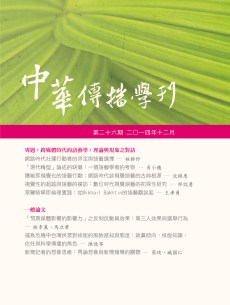 閱覽人數: 1692
閱覽人數: 1692
December
2014
No. 26
跨媒體時代的語藝學: 理論與現象之對話
Rhetoric in the Transmedia Age: A Dialogue between Theory and Phenomenon頁數:223 - 265
作者(中)
陳憶寧
作者(英)
Yi-Ning Katherine Chen
關鍵詞(中)
信任、政黨傾向、核能知識、科學傳播、福島
關鍵詞(英)
political trust, party identification, nuclear power knowledge, science communication, Fukushima
中文摘要
本研究在福島核災之後,檢視民眾對核能議題之風險感知與態度。於核災爆發後一周之內,進行全國1,093 位民眾的電話調查。結果顯示,政治信任程度愈低,愈是認為核能風險重要性高;民眾對政府的信任程度愈高,則愈支持核能。在傳播層面上,對核災的電視新聞愈注意,則愈覺得風險重要性高,也愈反對核能。客觀知識程度較高者,愈支持核能,也較接受核能風險。在性別差異上,男性比起女性較能接受核能風險。在政黨差異上,泛藍較泛綠支持核能。
英文摘要
This study explored how people in Taiwan perceived the risk of nuclear power during the Fukushima disaster in March 2011. An island-wide
telephone survey of 1,093 residents in Taiwan was conducted within one week after the disaster occurred. The results showed that people’s perception of the risk was primarily determined by their political trust. People who had
lower political trust were likely to be more concerned, whereas those who trusted the government more tended to support nuclear energy. Attention to television news was positively correlated with risk perception; those who
paid more attention to television news were likely to oppose nuclear energy. Additionally, people with more objective knowledge about nuclear energy tended to accept its risk and support its use. Male respondents exhibited a
higher tolerance of the risk than their female counterparts did. Consistent with past literature, Pan-Blue party supporters were more in favor of nuclear energy than Pan-Green party supporters.
telephone survey of 1,093 residents in Taiwan was conducted within one week after the disaster occurred. The results showed that people’s perception of the risk was primarily determined by their political trust. People who had
lower political trust were likely to be more concerned, whereas those who trusted the government more tended to support nuclear energy. Attention to television news was positively correlated with risk perception; those who
paid more attention to television news were likely to oppose nuclear energy. Additionally, people with more objective knowledge about nuclear energy tended to accept its risk and support its use. Male respondents exhibited a
higher tolerance of the risk than their female counterparts did. Consistent with past literature, Pan-Blue party supporters were more in favor of nuclear energy than Pan-Green party supporters.